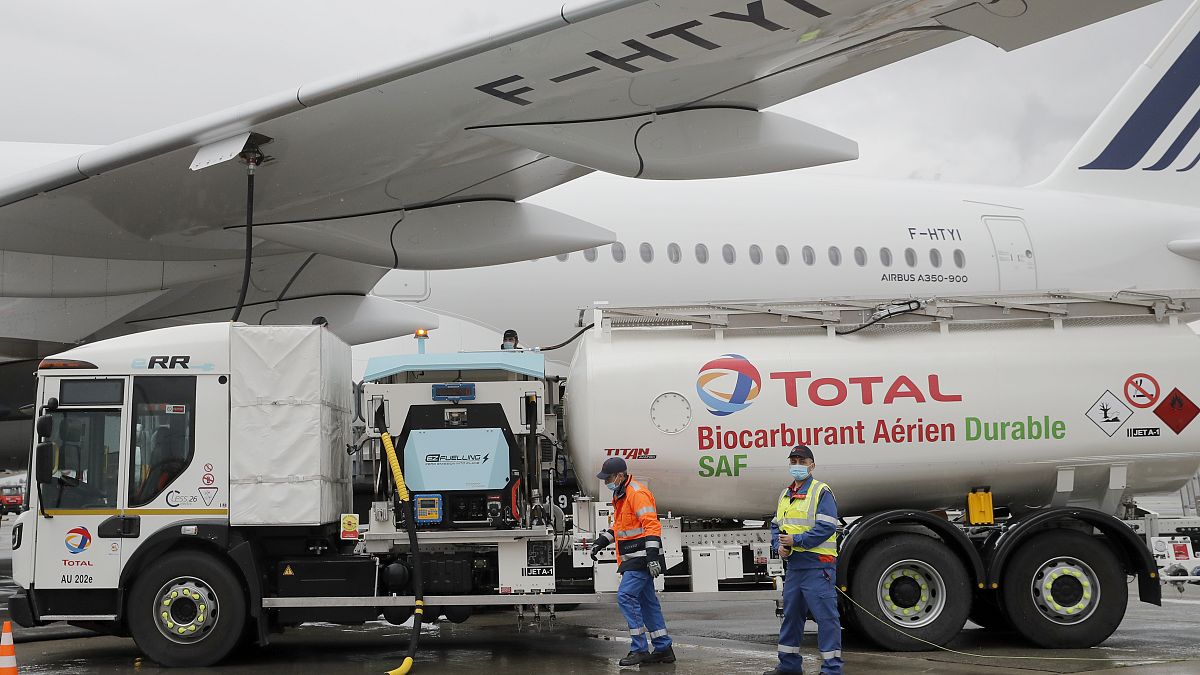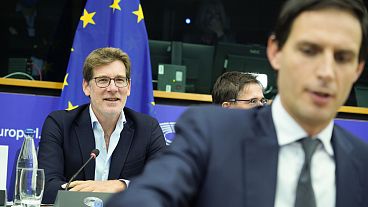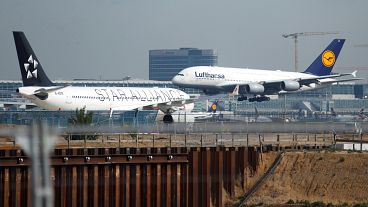A revision of a law setting minimum levies for fuels and electricity promised to bring an end to the era of tax-free energy for airlines and ship operators, but reform has been stalled for years, with EU governments unable to agree on how to update the 20-year-old Energy Taxation Directive.
Belgium has warned fellow member states that failure to agree this week to reform “technically obsolete” EU rules setting minimum tax rates for fuels and electricity could delay incentives for a switch away from harmful fossil fuels to cleaner alternatives.
In a bid to secure the necessary unanimous support for reforms to EU rules on energy taxation, the current holder of the rotating EU Council presidency has suggested governments should have a largely free hand over whether to tax aviation and shipping fuel, and proposed the agriculture and fishing industries should enjoy tax-free energy.
“The possibility to exempt the energy products and electricity used for agricultural, horticultural or aquaculture works, and in forestry has been added,” Belgian diplomatic staff wrote in a compromise proposal dated 17 April and leaked to the media late last week, noting the provision was added at the request of “some delegations” during a working party meeting in March.
Government delegates are due to reconvene on Thursday (25 April) in another, possibly final, push by the Belgian presidency to secure a joint EU Council position on the proposed reform.
The European Commission proposed in 2021 to harmonise rules on minimum tax levels for different fuels and electricity based on their energy content and environmental performance rather than volume, and limit exemptions such as the zero-rate of tax on aviation fuel that campaigners have long argued promotes flying at the expense of greener alternatives.
Since inconclusive talks in March, Belgian officials have been holding one-on-one meetings with other national delegations as they prepared their third compromise proposal “with the aim to reach a general approach in June”, an official told Euronews. Their job is complicated by the fact that tax is one of a handful of policy areas where the unanimous agreement of all 27 member states is needed to enact EU-level legislation.
In draft amendments to the proposal to revise the 20-year-old Energy Taxation Directive, Belgium has also extended exemption and transition periods a bid to assuage specific concerns raised by member states. Fuel for flights to and from islands with no road or rail links to the European mainland would be subject to a zero minimum tax rate for ten years, followed by a further five-year transitional period before standard rates apply. Moreover, a temporary exemption for fishing vessels is made permanent.
Jo Dardenne, aviation lead at the NGO alliance Transport & Environment, said the ETD proposal had been weak from the start as it covers only intra-EU trips, and the further watering down in search of inter-governmental backing meant it would only represent a “baby step” towards reducing the fiscal benefit enjoyed by airlines.
“Long-haul flights, which represent more than half of aviation fuel burnt, aren't taxed,” Dardenne told Euronews, while acknowledging as a “positive” move the immediate application of a minimum fuel tax for private flights. “However, they will pay the same level of tax as drivers for their fuel, which seems unfair given private jet flyers’ disproportionate climate impact and wealth,” Dardenne said.
In an accompanying note, the EU Council presidency holder warned delegations that if they “cannot support the compromise text, the risk is that the currently applicable ETD will continue to apply during an undefined period, which would be unfortunate”.
“In particular, the Presidency would like to draw delegations' attention to the fact that the currently applicable ETD is technically obsolete and therefore does not leave to Member States room for manoeuvre to fiscally promote products that are less damaging to the environment/climate,” the Belgian officials write.
But, although tax matters are technically the prerogative of national governments under the EU treaties, doubts about the future of the reform are compounded by a similar deadlock in the European Parliament, which must produce its own recommendations on the file before the EU Council can make its final decision.
The parliamentary rapporteur for the file – Belgian MEP Johan Van Overtveldt of the eurosceptic ECR group – announced on 12 April that he was removing an already postponed vote on the ETD from the agenda of the economic and monetary affairs committee for the foreseeable future.
“If voting means risking higher taxes and saying no to nuclear energy, then I would rather not vote at all,” Van Overtveldt said. “The EU’s competitiveness and the purchasing power of our citizens have already been compromised enough.”



